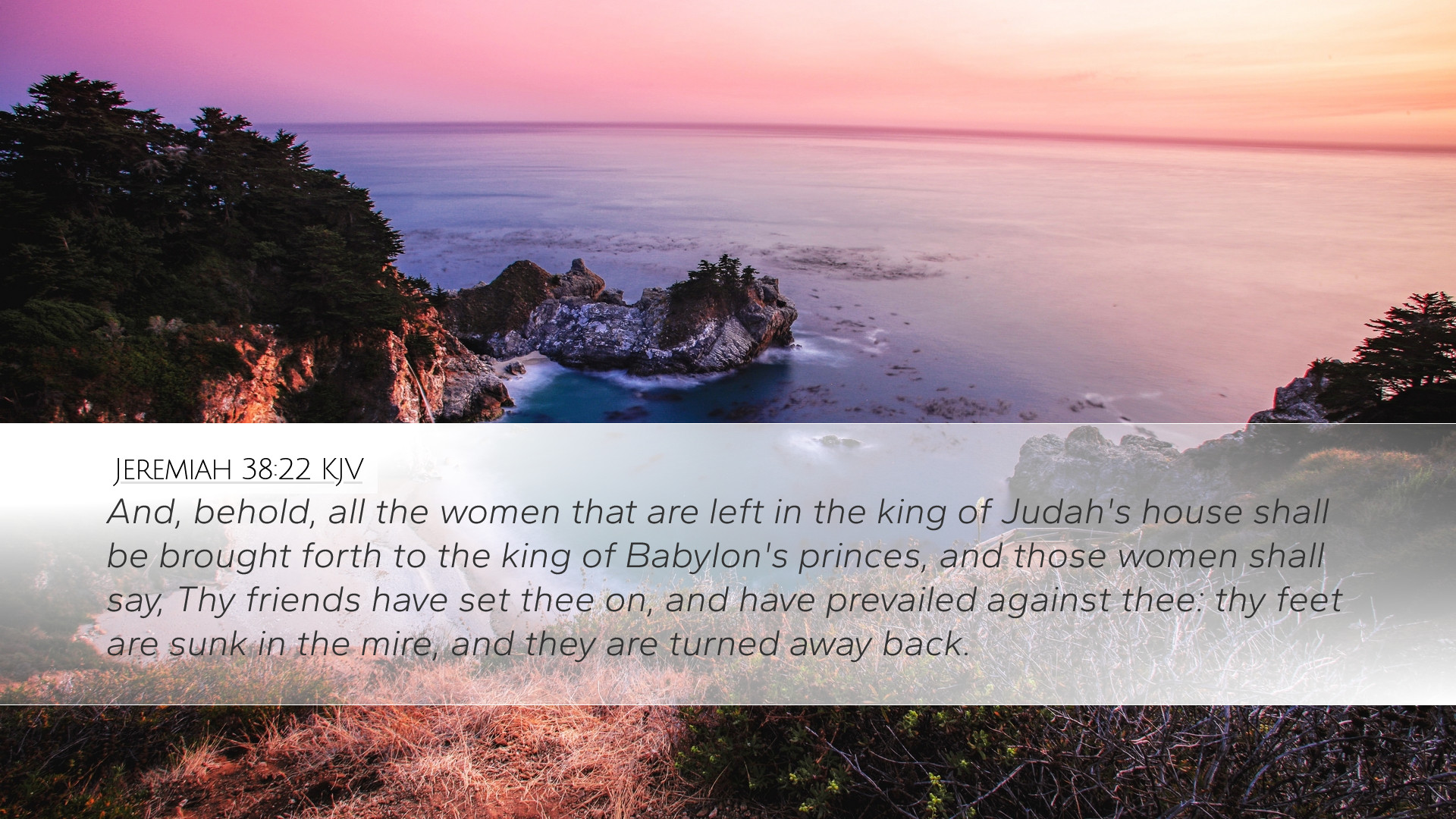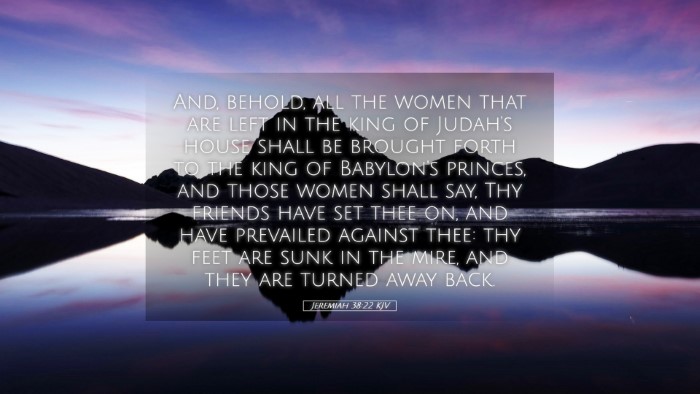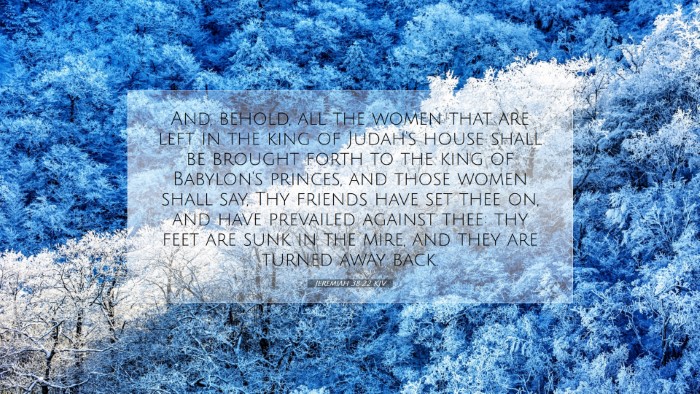Commentary on Jeremiah 38:22
Jeremiah 38:22 states: "And, behold, all the women that are left in the king of Judah's house shall be brought forth to the king of Babylon's princes, and those women shall say, Thy friends have set thee on, and have prevailed against thee: thy feet are sunk in the mire, and they are turned away back." This verse serves as a poignant reflection on the consequences of betrayal and political intrigue during a time of national crisis.
Contextual Background
The book of Jeremiah is a profound narrative of the prophetic ministry during the final days of Jerusalem before its fall. Jeremiah served during a time of strife, as the kingdom of Judah faced the threat of Babylonian conquest. Understanding the socio-political landscape is crucial for grasping the depth of this passage.
Matthew Henry observes that the women mentioned in this verse symbolize the repercussions of the king's actions. The message relayed by these women, filled with disdain for King Zedekiah, reveals a broader observation on loyalty and treachery within the court. They represent the sorrow and shame that accompany defeat.
Analysis of Key Themes
- Betrayal and its Consequences: The phrase "Thy friends have set thee on" indicates that Zedekiah's allies, instead of being true supporters, have led him to ruin. Albert Barnes emphasizes that this reflects the nature of false friends who may appear supportive but ultimately contribute to one's destruction.
- The Weight of Shame: The expression "thy feet are sunk in the mire" is rich with implication. Adam Clarke notes that these words speak to a state of desperation and hopelessness, where the leader finds himself entrapped by the very situation he hoped to control. The mire represents the moral and political corruption that ensnares leaders when they rely on deceit and lies.
- Judgment and Justice: This verse can also be seen as a prophetic declaration of judgment. The portrayal of the women articulating their contempt resonates with the justice of God, ensuring that the truth about Zedekiah's shortcomings is made manifest, as Barnes points out. This moment underscores the loss of dignity for those in leadership who stray from righteousness.
Pastoral Insights
For pastors, this passage serves as an urgent reminder of the importance of integrity and accountability within leadership. In a time where so many are seeking power, the warning from Jeremiah 38:22 underscores a fundamental truth: true leadership must rely on godly wisdom and faithful companions. Furthermore, the reflective aspect of the women’s lamentation reminds us that our actions carry weight and consequence that can reverberate through time.
Theological Reflections
The interactions depicted in Jeremiah 38:22 reveal a significant theological theme: God’s sovereignty in the midst of human failure. While Zedekiah experiences the fatal impact of political machinations and betrayals, we are reminded that even the most dire circumstances are under the watchful eyes of God. This serves as both a comfort and a challenge; we can rest in the sovereignty of God while striving to reflect His attributes in our leadership.
Conclusion
Jeremiah 38:22 encapsulates a moment of truth that resonates through ages, cautioning both leaders and followers alike about the nature of alliances and the real cost of disloyalty. Both the individual and collective experiences of betrayal bring a weight of sorrow and dishonor that reflect not only personal failures but also the broader theological narratives at play. Thus, this passage invites us to examine our allegiances, seek the counsel of the righteous, and lead with integrity in all that we do.


